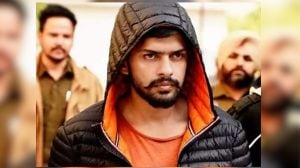No rainbow yet on SA’s social horizon: it’s only Black or White
JOHANNESBURG, April 11: It's a typical scene at a Johannesburg post office. About a dozen clients wait in front of three counters to be serv...

JOHANNESBURG, April 11: It’s a typical scene at a Johannesburg post office. About a dozen clients wait in front of three counters to be served by Black staff. After a long wait a White middle-aged woman hisses: See what happens when Blacks are favoured for jobs.
The province of Mpumalanga, not one of the wealthiest in South Africa, recently bought new luxury limousines for its ministers because three-year-old vehicles were allegedly falling apart .
Criticism in the White press was rejected by the Finance Minister as racism.These are just two examples that illustrate that the ideal of a rainbow nation where all races live together peacefully is still a long way off.
Four years after the country’s first democratic all-race elections, racial tension between Black and White still explodes in ugly scenes, such as in the predominantly white Afrikaner town of Vryburg in the northwest province recently.
Authorities in the town closed a school for a month after three weeks of racial unrest when white andblack pupils and their parents tackled each other in fist fights.
The trouble began when five Black students were prevented from attending classes after protesting against an increase in school fees.
The Afrikaans poet and author Breyten Breytenbach, a renowned anti-apartheid activist who now lives in Senegal, recently wrote of the white fear and suggested that the honeymoon was over for South Africa.
“Race tension is on the increase…I don’t think that South Africa will become a melting pot of the races, he said.
Durban sociologist Ashwin Desai believes that economic policies of the ruling African National Congress (ANC) are mainly responsible for the race tension. As long as the government fails to provide jobs for Blacks in the White-dominated economy, the dividing line between rich and poor will deepen even further, he argues.
Desai points out that it is no good that only a few Blacks become wealthy while thousands of others lose their jobs. When poverty and unemployment increases … There ismore tension between the races.
In another development the country’s Truth and Reconciliation Commission (TRC), which is responsible for investigating human rights violations during the apartheid era, is coming under increasing criticism.
The director of the Johannesburg centre for political studies, Steven Friedman, believes that the TRC, headed by Nobel Peace prize laureate Desmond Tutu, will fail in its bid to reconcile Blacks and Whites.
The supposition, based on Christian belief, that victims will forgive if the persecutors repent is false, he argues.
“It is simply unrealistic to believe that south africans will forget within one or two generations their identification with their own race,” fRiedman said in an interview with the German press agency DPA.





- 01
- 02
- 03
- 04
- 05


























